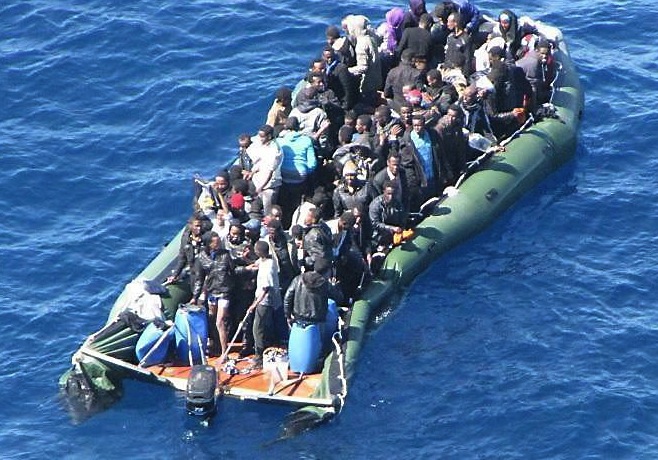
Sep 16, 2016 | Advocacy, Non-legal submissions
At the UN Human Rights Council, the ICJ today emphasized the role of judges and lawyers in securing human rights and the rule of law for refugees and migrants, including in situations of large-scale movements.The statement, delivered during a general debate, read as follows:
As the report of the High Commissioner for Human Rights, on Promotion and protection of the human rights of migrants in the context of large movements (UN doc A/HRC/33/67), recognizes, all such persons must have “access to justice”, including effective access to courts and lawyers.
This includes fair and effective individualized procedures in relation to key decisions such as: entitlement to refugee status or other international protection; detention or criminal proceedings based on entry or presence in the country; and expulsion or onward transfer.
The roles of the executive, legislature and judiciary in such situations has been debated in many countries. In some cases, governments have invoked the concept of “crisis” or “emergency” to justify radical departures from ordinary procedures, including reducing effective access to independent judges and lawyers.
In the experience of the International Commission of Jurists (ICJ), over many decades and in all regions of the world, the role of judges and lawyers in securing human rights and the national and international rule of law is in fact even more important in times and circumstances perceived to be “exceptional”, or of “crisis” or “emergency”. The ICJ is therefore deeply concerned about any reduction of the role of judges and lawyers in relation to large-scale movements of refugees and migrants.
The seventh annual ICJ Geneva Forum of Judges & Lawyers, 17-18 November 2016, will bring together judges, lawyers, and refugee and migration experts from around the world, as well as relevant UN, regional, and other agencies, to discuss the role of judges and lawyers in situations of large-scale movement of refugees and migrants. Based on the discussion, the ICJ will produce and disseminate guidance on the important role of judges and lawyers to protect human rights and the rule of law in all such circumstances.
The statement may be downloaded in PDF format here: hrc33-oralstatement-gditem3-migrantsrefugees-16092016
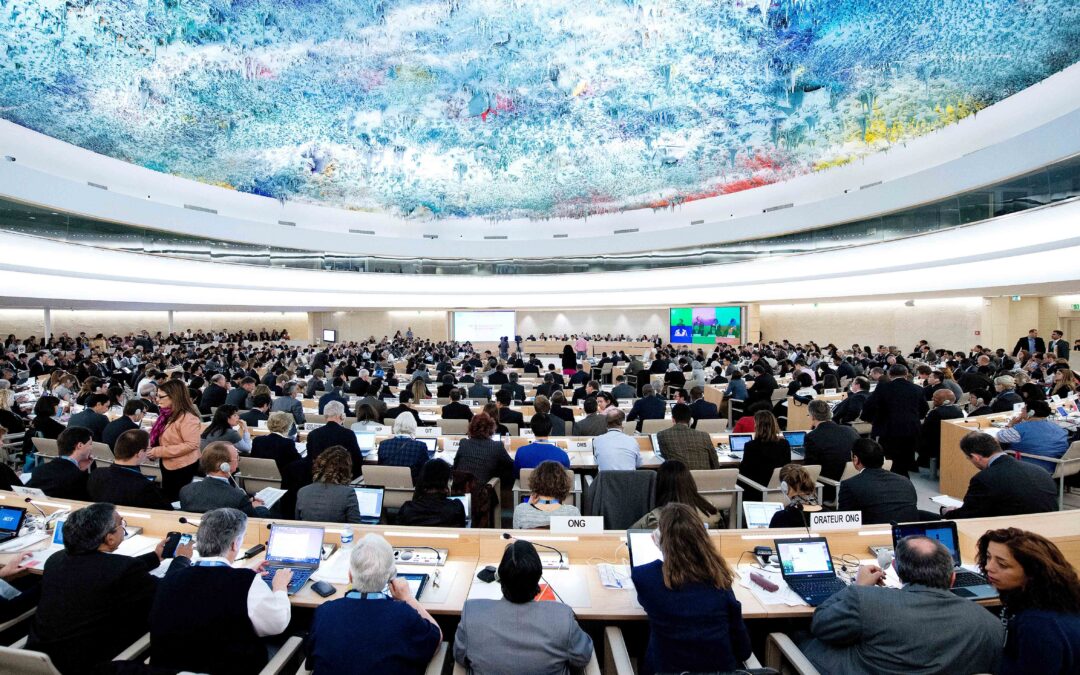
Jun 29, 2016 | Advocacy, Non-legal submissions
The ICJ, joined by FIDH, Franciscans International, and IMADR, today delivered a statement to the UN Human Rights Council.
The statement was on the situation of Rohingya Muslims in Myanmar, and on the need for active participation by international judges in the judicial mechanism to be adopted in Sri Lanka as part of the process of accountability and reconciliation.
The organizations stated, during general debate on an oral update on Sri Lanka from the High Commissioner for Human Rights, and the Commissioner’s report on the situation of Rohingya in Myanmar, that:
The Government of Myanmar has persecuted the Rohingya, refused to extend basic citizenship rights, and Parliament passed legislation entrenching discrimination such as the Race and Religion Protection laws. This has displaced thousands within Rakhine State and driven the Rohingya to sea and neighbouring countries. The ICJ, FIDH, Franciscans International and IMADR call on Myanmar:
- to repeal the 1982 Citizenship Law or amend it in accordance with the recommendations of the Special Rapporteur, to grant Rohingya full citizenship and accompanying rights;
- to develop a citizenship plan based on non-discrimination;
- to reject the Rakhine State Action Plan in its current form;
- to repeal laws that discriminate against ethnic and religious minorities;
- to diligently prosecute all acts of violence fuelled by discrimination, and hate speech that incites discrimination, hostility or violence; and
- to improve basic living conditions for the Rohingya and Arakanese in Rakhine State by enhancing protection of their economic, social, and cultural rights.
We welcome recent initiatives by the Government of Sri Lanka towards implementing Resolution 30/1, including the establishment of an Office of Missing Persons, and ratification of the Convention for the Protection of All Persons from Enforced Disappearance.
However, many of the commitments in the resolution remain unfulfilled. The other three transitional justice mechanisms envisioned by the resolution – an office of reparation, a truth-seeking commission, and a judicial mechanism – are yet to be established.
We call on Sri Lanka to implement, without delay, all elements of Resolution 30/1, including particularly the establishment of a credible judicial mechanism with full participation of international judges, prosecutors and lawyers. We agree that international participation is “a necessary guarantee for the independence and impartiality of the process in the eyes of the victims” (High Commissioner’s Oral Update, A/HRC/32/CRP.4, paragraph 32).
Rapid progress on this and other key elements of the resolution is essential to the credibility of the overall process of transition in Sri Lanka.
The statement can be downloaded in full, in PDF format, here: HRC32-OralStatement-SriLankaMyanmar-2016
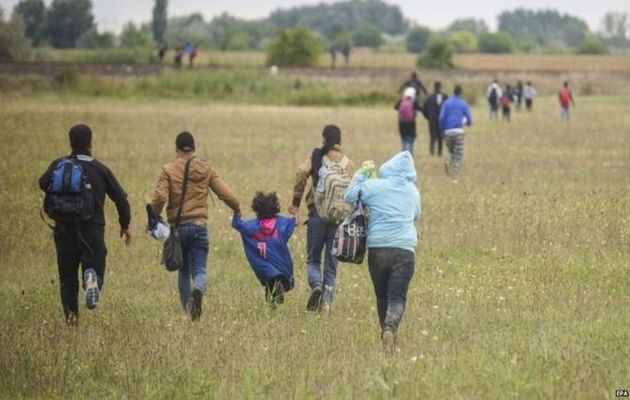
Nov 18, 2015 | Events, News
The ICJ, OSCE and Group 484 are holding a training on migration and international human rights law starting on Tuesday 17 November in Vrnjačka Banja (Serbia).
The training has been organised by the Organisation for Security and Cooperation in Europe (OSCE) and the Serbian NGO “Group 484” and will be given by the International Commission of Jurists.
It will focus on international protection of migrants and asylum seekers, access to territory and asylum and the principle of non-refoulement, in light of the current migrants and refugee crisis and drawing from the jurisprudence of the European Court of Human Rights, of the UN human rights systems and from EU law.
The training will be centred on the ICJ Practitioners Guide no. 6: Migration and International Human Rights Law.
Serbia-JointTrainingMigrationHR-Events-2015-ENG (download the agenda in English)
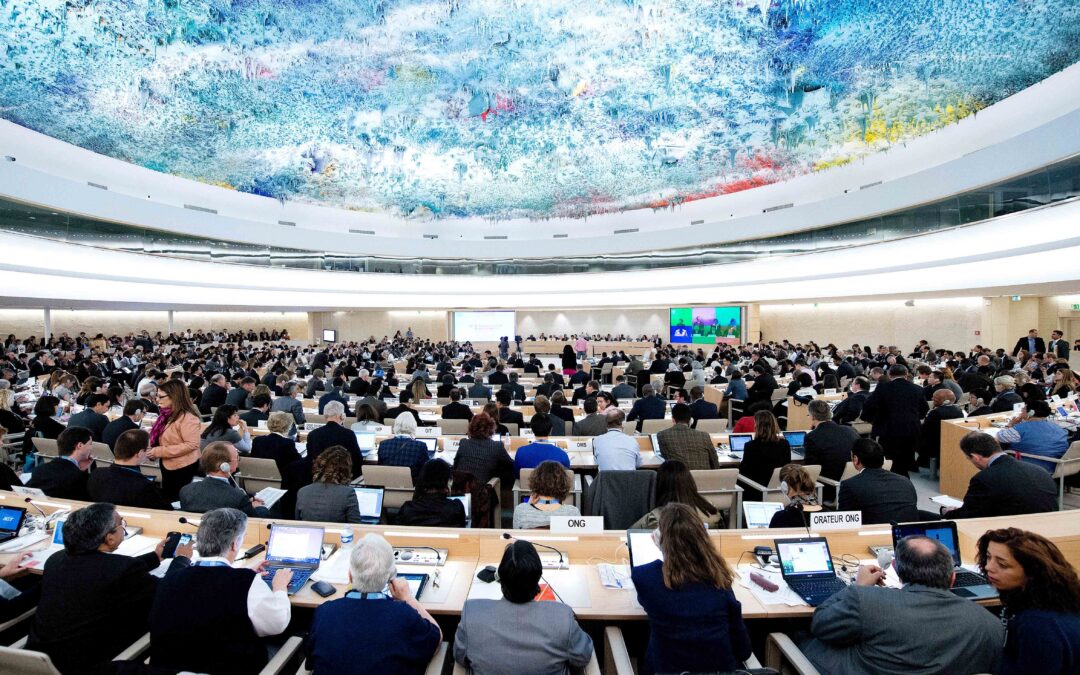
Sep 21, 2015 | Advocacy, Non-legal submissions
The ICJ today delivered an oral statement at the UN Human Rights Council during the Interactive Dialogue with the Commission of Inquiry on the Syrian Arab Republic concerning accountability and other measures to address the Syrian conflict.
In the statement the ICJ called upon the UN Human Rights Council and the Security Council to respond to the findings of the 10th report of the Syria Commission of Inquiry, including with a view to ensuring accountability for the serious violations of international law.
The ICJ also called upon all states to comply with their obligations under international law vis-à-vis the Syrian conflict, including by searching for all those responsible for international crimes committed in this conflict and bringing them before their own courts, and by protecting the rights of Syrian refugees and abiding by the principle of non-refoulement.
The full statement may be downloaded in PDF format, here: Syria-UN-HRC30-OralStatement-Advocay-non legal submission-2015-ENG
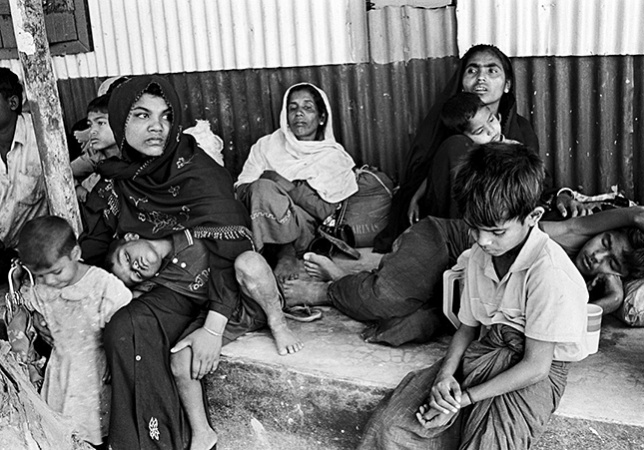
May 27, 2015 | News
Representatives of 17 countries gathering in Bangkok on 29 May to discuss the humanitarian crisis involving thousands of Rohingya and Bangladeshis adrift in the Andaman Sea must adopt a regional response that complies with international human rights law and standards, said the ICJ today.
“The countries in ASEAN should work with each other and the international community to immediately save the lives of thousands of Rohingya and Bangladeshi people now trapped on ‘floating coffins’, and to address the human rights disaster in Rakhine state that helped create and foster this crisis,” said Sam Zarifi, ICJ’s Asia director.
“It’s essential that the participants of this meeting use this opportunity to establish a response that complies with international law and standards on human rights, the treatment of refugees and migrants, and people in distress on the sea,” he added.
The government of Thailand called the “Special Meeting on Irregular Migration in the Indian Ocean” to provide a forum for countries affected by this crisis.
The main countries involved in this crisis, Myanmar, Bangladesh, Thailand, and Malaysia, have not signed on to the Refugee Convention or to the Convention relating to the Status of Stateless Persons.
“Now they have to scramble to come up with a sensible and humane response,” Zarifi said.
“ASEAN countries have hidden behind the notion of ‘noninterference’ to turn a blind eye to the persecution of Rohingya in Myanmar, to the growth of criminal smuggling and human trafficking networks, and the increasing demand for undocumented laborers,” he added.
“But this crisis shows that problems in one country can and will quickly spread to the others unless ASEAN can provide a rights-compliant regional response.”
The ICJ calls on all ASEAN Member States and Bangladesh to become parties to key international treaties, such as the 1951 Convention Relating to the Status of Refugees and its 1967 Protocol, the Convention relating to the Status of Stateless Persons, and the 1979 International Convention on Maritime Search and Rescue (SAR).
The SAR encourages parties to enter into search and rescue agreements with neighboring states to ensure that assistance be provided to any person in distress at sea regardless of the nationality or status of such a person or the circumstances in which that person is found, and provide for their initial medical or other needs, and deliver them to a place of safety.
A draft ASEAN Convention Against Trafficking in Persons Especially Women and Children (ACTIP) and a corresponding Regional Plan of Action (RPA) for the Convention’s operationalization have yet to be endorsed by ASEAN leaders, and no copies of the drafts have been released to the public.
The ICJ calls on ASEAN to make this draft Convention and RPA public and hold consultations with civil society organizations, especially those that work with trafficked persons on which governments so frequently rely as service providers.
The ICJ also points out that certain ASEAN Member States have critical roles to play as integral components to the regional efforts addressing the current crisis.
It is clear that discriminatory policies and actions in Myanmar have significantly contributed to this regional humanitarian crisis, the ICJ says.
The ICJ adds that the Rohingya are forced to flee their homes because of ethnic conflict and the policies of the Myanmar government.
“The government has persecuted the Rohingya, refused to extend basic citizenship rights to them and in fact has recently passed legislation to entrench discrimination against the Rohingya such as the Protection of Race and Religion laws,” said Zarifi.
“These are some of the so-called ‘root causes’ that have displaced thousands within Rakhine State and driven the Rohingya to the sea and to the territory of neighboring countries. It is no longer possible to cite ‘sovereignty’ as an excuse for silencing regional discussions about these serious human rights concerns,” he added.
The ICJ has called on Myanmar to scrap laws that discriminate against minorities and to actively prosecute acts of violence fuelled by discrimination as well as crimes of hate speech.
The ICJ has also urged Myanmar to undertake every effort to improve basic living conditions for the Rohingya and Arrakhanese population in Rakhine State by enhancing respect for and protection of their economic, social, and cultural rights.
The ICJ also called on Thailand to assume its natural role as a key stakeholder in resolving this crisis.
“Thailand’s full commitment to a coordinated regional human rights based response is crucial,” Zarifi further said. “Thailand’s convening of a regional meeting is a welcome step, but as the meeting’s name suggests, Thailand still views this problem as primarily one of migration and trafficking, instead of as a serious human rights crisis that demands a human rights-based regional response.”
Thailand has recently committed to provide humanitarian assistance to migrants and refugees on board the boats.
However, the ICJ emphasized that Thailand and other countries must go further and rescue individuals in distress at sea and allow those who arrive on their shores to expeditiously and safely disembark.
Rather than pushing them back, involuntarily returning them, detaining them or applying other punitive measures, they should be provided with adequate and humane reception conditions and necessary medical care in the country.
Thereafter, with the aid of experts, their further protection and assistance needs must be individually and accurately determined and then addressed, consistent with international standards.
“The Thai government’s response that a naval vessel will be used as a floating administrative center for people already adrift in the waves, and that not even those in need of medical assistance will be allowed onshore, is simply callous and in violation of Thailand’s international obligations,” concluded Zarifi.
Additional information:
Eight ASEAN Member States will be attending the “Special Meeting on Irregular Migration in the Indian Ocean”: Cambodia, Indonesia, Lao PDR, Malaysia, Myanmar, Philippines, Vietnam, and Thailand. Singapore and Brunei Darussalam are not taking part in the meeting.
Also present will be representatives of Afghanistan, Australia, Bangladesh, India, Iran, New Zealand, Pakistan, Papua New Guinea, and Sri Lanka; the United States of America and Switzerland will participate as observers.
Three international organizations, namely the UN Refugee Agency (UNHCR), the UN Office of Drugs and Crimes, and the International Organization of Migration will also join the meeting.
Contact:
Sam Zarifi, ICJ Regional Director for Asia and the Pacific, t: +66807819002 ; e: sam.zarifi(a)icj.org









